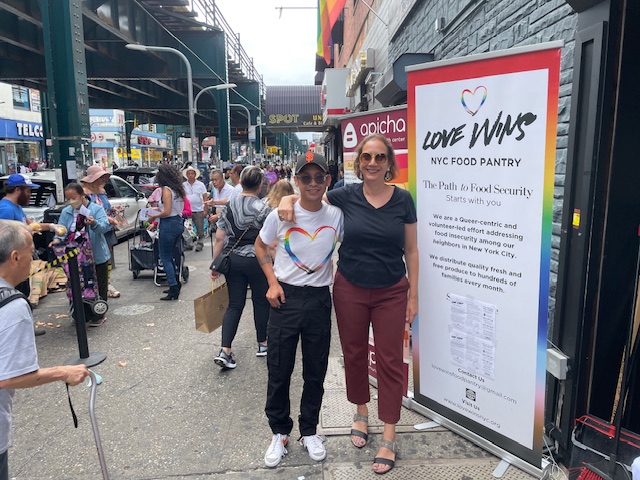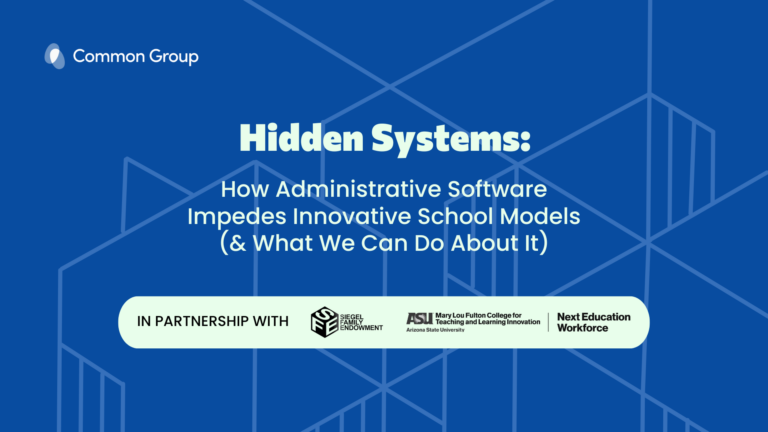Computer Scientist Deborah Estrin Reflects on Cornell Tech’s Pioneering PiTech Program
The Public Interest Technology (PiTech) Initiative at Cornell Tech is at the forefront of a movement to offer applied technical learning experiences rooted in the public interest to emerging technologists, faculty, researchers, and practitioners. The PiTech Impact Studio and the Siegel PiTech PhD Impact Fellowship are signature programs that typify PiTech’s approach of building a commitment to responsible tech and public interest technology among students, regardless of whether they enter careers in the public, civil society, or private sectors.
We sat down with renowned computer scientist and leader of PiTech at Cornell Tech, Deborah Estrin, to discuss PiTech’s practicum approach; why Cornell Tech was the perfect place to realize her vision for public interest tech learning; how she first encountered the concept of public interest tech (hint: it involves us!); and Estrin’s vision for how public interest tech approaches can be incorporated into a variety of settings.
You worked in public interest tech long before anyone called it public interest tech. What drew you to this field?
I’ve always had a bent towards social opportunities and impact challenges related to technology. Even as an electrical engineering and computer science undergrad, I had a tendency to be distracted by what was going on outside of tech. For almost my entire career, I’ve been doing technology for something, whether in environmental monitoring or health technology. I’ve always had a bit of that activist in me.
How common was that approach when you first started your career? Have you seen a change in how what we now call “public interest technology” is valued in the field?
When I started, a focus on social implications wasn’t typical. In fact, for many years, I sometimes felt as though my interest in the social realm was seen as detracting from my credibility as a technologist. Early on, I didn’t even list my master’s in technology policy on my bio! But in the last ten years it’s become a thing. More young faculty and students—and the larger world—are saying that this is important. My once unusual interest is now mainstream in academic circles, at least.
When did you first encounter a public interest tech framing for the work that you were doing? How did that lead you to create PiTech?
Actually, the first time I heard the term “public interest tech” was from David Siegel! I think it was around 2018, and David was chatting with me and some others at a Cornell Tech Council meeting. He referred to his conversations with Darren Walker, the president of the Ford Foundation and used that phrase. I didn’t act on it immediately, but it stuck with me.
Over the next year, I was planning for my sabbatical and also thinking about a larger project I could tackle that would rise to the occasion of receiving a MacArthur grant. At the same time, across the CS community, more students were increasingly seeking out ways to engage with responsible tech and public interest tech. It was no longer considered an unusual thing. So I started thinking about how to bring public interest tech to Cornell Tech as a platform for exploring and elevating these ideas.
I spent a fair amount of time looking at other programs to build on, rather than starting from scratch. For example, I had an intern who did some background work on public interest law to see what we could take from that model. For me, it was all about making the model work practically. I didn’t just want to study what could constitute public interest tech; I wanted to build infrastructure that would help emerging tech practitioners and researchers gain hands-on experience doing public interest tech.
Why was Cornell Tech the right place to develop PiTech?
I had prior experience establishing a standalone nonprofit venture/startup so knew firsthand that startups aren’t necessarily the most frugal or sustainable answer to unaddressed social needs. A new business can be a pretty expensive way to address a problem. In this case, I thought that it made much more sense to build PiTech on top of an existing venture that had the infrastructure to address the need.
Cornell Tech was that existing venture, that existing infrastructure. We have master’s students, PhD students, postdocs, and faculty and a unique studio model that prioritizes hands-on, real-world learning and partnerships. Plus, we can tap into subject matter expertise, which is not always present in purely technological initiatives. As an example, I worked on digital health projects for 15 years, and I always wanted a doctor “in the room.” It’s important to have the people and organizations out there who know the complexities of the problems you’re trying to address.
Cornell Tech’s faculty and partners allow for that. Even faculty who do what I think of as “tech for tech” have external engagement with companies and policymakers. In fact, we added external engagement to the hiring, tenure, and promotion process. It’s a concept that is foundational for Cornell Tech. I saw an opportunity to draw on that external engagement emphasis within the faculty and the commitment that Cornell Tech has to Studio as I laid out a plan for PiTech.
Tell us more about how PiTech engages with Cornell Tech’s Studio model. How did your approach evolve over time?
Since 2013, not a single master’s student across our academic programs has left Cornell Tech without some level of practical and entrepreneurial culture exposure, thanks to Studio. And since the introduction of PiTech in 2021, we have integrated responsible tech and public interest tech content into that core Studio experience. That means that even students who are working on monetization-focused products and startups do a multi-stakeholder-based ethical risk assessment or some sort of responsible tech exercise. It’s core to our curriculum.
The PiTech Studio has also evolved over time. In the early days, it was focused on social venture startups. And there were some successes there. For example, the first winner of the Siegel Family Endowment PiTech Startup Award spun off as a successful startup addressing equity issues in maternal health. But we realized that we have too many public interest needs and significant student interest to address them only when a unicorn emerges.
So we have switched to a service learning practicum format which can be applied more widely and across different contexts. Not coincidentally, that is closer to the field’s origin story of Public Interest Law clinics. Under PiTech Impact Studio’s practicum format, students will participate in applied learning opportunities, alongside more formal coursework. We have an amazing instructor: Matthew Klein, Robin Hood’s Chief Program and Impact Officer. I’m very excited about that.
The wonderful thing about having flexible philanthropic funding for this work is that it gives us the ability to experiment and try one format or another to see what makes the most sense. You can’t just reason this through first-principles. You have to meet students’ interests, which change from year-to-year. And above all, you have to meet the public interest needs in a way that’s both generative for the field and teachable to students.
How is PiTech’s approach different from other public interest tech programs in higher ed?
We are quite different from the many public interest tech programs that were created to serve undergraduate and non-engineering majors.
Most master’s students come to Cornell Tech to deepen their technical skills and entrepreneurial exposure and pursue jobs in industry. So It just doesn’t make sense to try to focus our programs on preparing students to work full-time in the public or nonprofit sectors.
Instead, our goal is to imbue in all of our students a public interest orientation that they can carry through into their professional lives. Maybe they will contribute to an open source project with organizations like BetaNYC or volunteer with organizations like US Digital Response. Maybe they’ll incorporate social impact into the mission of a new company they found. Maybe they’ll ask critical ethical questions that change the trajectories of existing companies. There are lots of settings where they could be applying these ideas and skills.
How does that philosophy infuse your work with PhD students through the Siegel PiTech PhD Impact Fellowship?
Like our master’s students, PhD students are typically not pursuing careers in civil society organizations. Some of them end up in academia. Some of them end up in commercial research organizations. Some of them end up in product-focused startups or larger tech companies. Very few of them enter the public interest or public sectors as their primary gigs. We therefore focus on providing hands-on impact experiences to these students so that they can apply public interest and responsible tech approaches in whatever career they pursue.
What does the PhD Impact Fellowship involve? Why did you decide to establish the fellowship?
For context, most technical PhD students spend a number of their summers during their PhD going out and working for companies on internships. I thought, “What if we created opportunities for students to do internships with public interest or public sector organizations, not only with commercial enterprises?”
We heard from students we interviewed that they most wanted help curating specific projects and managing the relationships with external organizations. That way we’re not simply going to organizations and saying, “Here’s a technical student…good luck putting them to work.” Instead, we engage in conversations with the organizations early-on to understand their context and provide guidance and feedback on project scoping. We have become increasingly discerning about which projects are a good fit for students to consider. Students apply for a particular project and we work to make high-quality matches.
For pragmatic reasons, we decided to limit the program to Cornell University Tech students from both of our campuses and to partner with local organizations. We invested in developing relationships with a mix of potential host organizations in the nonprofit and public sectors and we seek a balance across different subject matter areas that are of interest to students. And unlike industry internships, we pay the students to avoid the cost burden on these organizations. This is where much of our philanthropy funding is deployed.
We started with five applicants the first year, and this year we had over 50 applicants for our 10 impact fellow positions. We apply a lot of care and attention curating meaningful projects and to matching students based on skills and interests.
What do you hope that students get out of the PhD Impact Fellowship?
I hope that every research technologist that we birth into the world has the opportunity to help address messy, difficult social needs, particularly those that do not have a monetizable solution. We want them to carry that forward.
They might be working on products that are multi-stakeholder and have impact in a community context. They might be working on a side project. All the tech companies have research arms which many PhD students go and work for, and have opportunities to spend some of their time working on social, public-facing problems.
Wherever it is that they are working, they are important citizens of the world because they have tech expertise and they influence what happens in STEM and other things. I hope that they go and approach those problems with subject matter experts from those communities and contexts, and not just use potential social good as window dressing. This is already a part of many technologists’ lives. We hope to help them pursue it in a richer, more meaningful way.
For many of today’s academic jobs, applicants are asked to describe social impact aspirations alongside research and teaching statements. The PiTech PhD Impact Fellowship experience gives them insight into how they can be impactful technologists as well as researchers and teachers.
Public interest and social impact should be a part of technologists’ lives whether they’re in academia or work for traditional companies or institutions. It shouldn’t just be a part of the lives of people working in the nonprofit and public sectors. Technologists should have a background in actually doing that work, rather than just learning the theory. That’s what we’re trying to do through both the Siegel PiTech PhD Impact Fellowship and the PiTech Impact Studio.
#####
Deborah Estrin leads the PiTech program at Cornell Tech, where she is a Professor of Computer Science; holds the Robert V. Tishman Founder’s Chair; serves as the Associate Dean for Impact; and is an Affiliate Faculty at Weill Cornell Medicine. Estrin’s research activities include digital health, technologies for caregiving, small data, and Public Interest Technology.
Estrin is an elected member of the National Academy of Engineering, National Academy of Medicine, was chosen as a 2018 fellow of the MacArthur Foundation, and was named the 2022 recipient of the prestigious Institute of Electrical and Electronics Engineers (IEEE) John von Neumann Medal.





